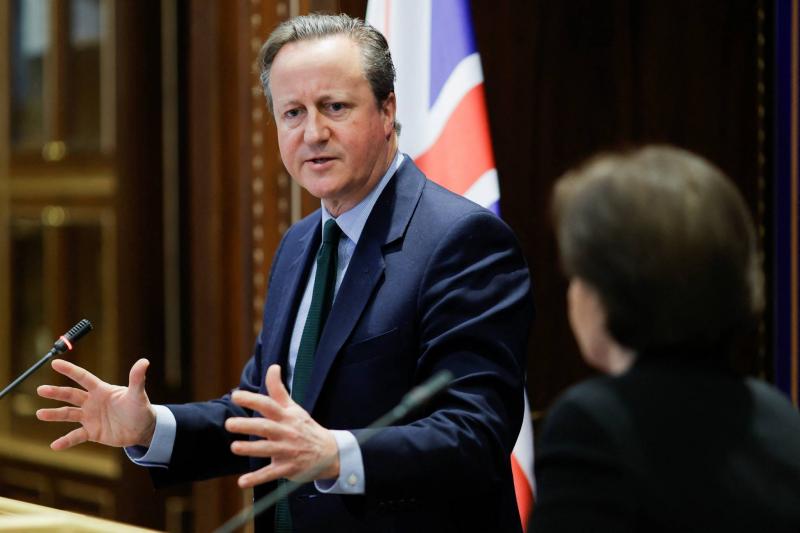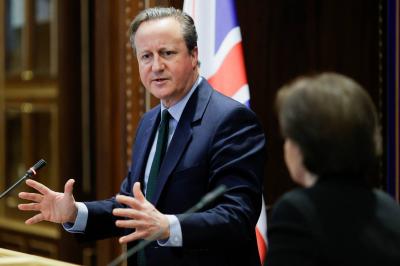The British Embassy in Lebanon distributed a statement indicating that "British Foreign Secretary David Cameron concluded his one-day visit to Lebanon yesterday (Thursday, February 1). This is his first official visit as Foreign Secretary, following his previous visit as Prime Minister in September 2015, and his fourth visit to the Middle East as Foreign Secretary." The statement noted that Cameron "was accompanied by Minister of State for the Middle East, Lord Ahmad, and met with Prime Minister Najib Mikati, Parliament Speaker Nabih Berri, Lebanese Army Commander General Joseph Aoun, and the Commander of the United Nations Interim Force in Lebanon, Major General Aruldo Lazaro. During his discussions, David Cameron expressed his concerns about the escalating tensions along Lebanon's border with Israel and underscored the UK's commitment to supporting a de-escalation of violence."
It was mentioned that Cameron "observed during his visit to the Rayak Air Base in Baalbek, the close cooperation between the UK and Lebanon to provide training for the four border regiments. He reaffirmed the long-standing and proud partnership with the Lebanese Army. The UK's support for the Lebanese Army has now surpassed £100 million since 2009. The UK has thus far supported the construction of 78 border towers and supplied 344 Land Rover vehicles, 3,450 sets of personal protective equipment for soldiers in border operations, and 100 armored Land Rover patrol vehicles, as well as training over 26,500 members of the Lebanese armed forces in border operations and internal security."
The Foreign Secretary also announced new funding of £7.35 million from the UK for the Office for the Coordination of Humanitarian Affairs and the Humanitarian Fund in Lebanon, which supports UN agencies and NGOs to provide food, water, shelter, and other essential support for the most vulnerable communities across Lebanon. A contribution of £2.6 million was announced to support the education of the most vulnerable children through a network of community centers for out-of-school children as part of funding from the Education Trust Fund in support of the education sector in Lebanon under UNICEF and the Ministry of Education and Higher Education.
The statement clarified that "this visit is part of the Foreign Secretary's regional tours last week and this week. Cameron continues to press for an immediate ceasefire in the conflict in Gaza to allow the introduction of aid and the release of hostages while working towards a sustainable and lasting ceasefire." Cameron stated, "The UK is working to help maintain stability in Lebanon and prevent any destructive regional escalation." He added, "We support the Lebanese armed forces; we have trained over 26,500 Lebanese soldiers and are providing more humanitarian aid to assist the most vulnerable groups."
He continued, "Thank you to Prime Minister Najib Mikati and Parliament Speaker Nabih Berri." British Ambassador to Lebanon, Hamish Macleod, remarked, "The visit of Foreign Secretary Lord Cameron and Middle East Minister Lord Ahmad yesterday reaffirms the UK's longstanding support and commitment to Lebanon's stability and security." He added, "The situation along the Blue Line is fragile, and the escalation of violence is not in anyone's interest. In his meetings, the Foreign Secretary emphasized the need to cease hostilities and implement UN Security Council Resolution 1701. This is crucial if we want to see a long-term solution for peace." He concluded, "We are proud of our steadfast support for the Lebanese Army, which will continue to enhance its capacity to manage and respond to security challenges, as well as our ongoing support for Lebanon's most vulnerable groups."




